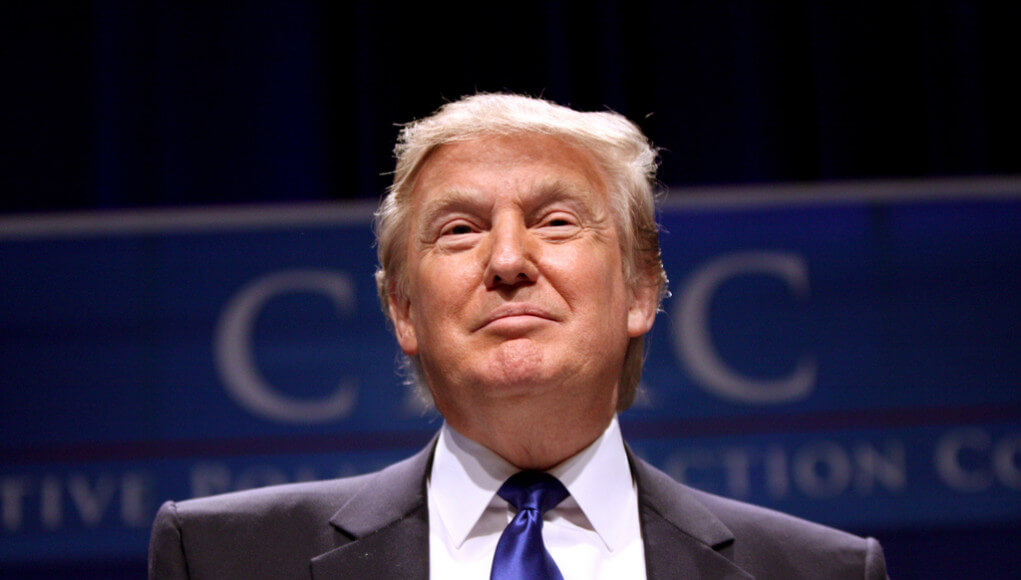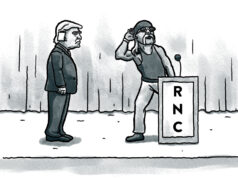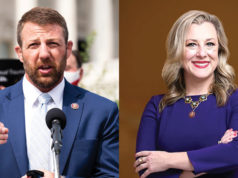
Time and again, conventional wisdom is wrong in every arena where we keep score: politics, business, sports and finance.
A cadre of strategists and journalists has proclaimed for 70 days that Donald Trump’s presidential campaign is D.O.A. Yet, it’s been one of the best examples of conventional wisdom at its worst.
After the first 2016 Republican debate on Aug. 6 in Cleveland, almost every political pundit and operative from all political persuasions declared Trump a debate loser. However, he fared quite well in the debate, and the “Trump Bump” continued.
Trapped in a conventional-wisdom echo chamber, these commentators have had a hard time distinguishing their personal beliefs from the feelings of Republican primary voters, because the Tea Party is not well represented on the talking-head circuit.
After clearing my head of the conventional wisdom and assessing Trump’s strengths, weaknesses and audience, my prediction is that Trump will win the Republican primary.
Here’s why.
Synchronicity with his audience
Trump has a lot going for him with Republican primary voters. Compared to commentators based in Washington, D.C., this electorate is older, angrier, whiter, extremely anti-Obama, more male and more steeped in Middle America values. Even when it is outlandish, Trump’s message speaks to this sliver of the country.
A billion-dollar brand
Not since Gen. Dwight D. Eisenhower ran for president has a candidate begun with a more valuable and deeply defined brand. Even Ronald Reagan was never part of a hit movie, but Trump has starred in a prime-time major-network TV show since 2004. No matter what Trump’s net worth actually is, his “brand” has to be worth at least a billion advertising dollars. No one has ever run for president with his level of awareness among the public, from the informed electorate to barely informed voters. Since he is already defined to these voters, they stick by him even when he says something outlandish.
The antithesis of Obama
In the 2008 election, part of Barack Obama’s appeal to Democratic primary voters was how different he seemed from then-President George W. Bush. A thoughtful orator from humble beginnings, Obama was a biracial internationalist who opposed the Iraq War. But in 2016, who could be more different from President Obama than Donald Trump? The business mogul is boastful, impetuous and the son of privilege.
Brash contrarians sell in primaries
Primary voters want someone who stands for something and doesn’t play it safe. U.S. Sen. John McCain does not like Donald Trump. David and Charles Koch do not like Donald Trump. Most insiders do not like him either, having predicted a swift fall from grace that has not happened.
In the general election, it would be a great strength for Trump to tout how many political insiders tried to stop him. He could eventually get the Koch brothers’ money and still believably tell voters he will stand up to them. Being independently wealthy feeds a message that Trump “is his own man.”
Well-timed messaging from a business man
Trump’s bluster cloaks a few of his smartly-timed political moves. His message on immigration (hateful as it is) speaks to one of the top issues that enrages Republican primary voters. His battle with President Obama over birth certificates was only a few years ago, when 51 percent of Republican primary voters believed Obama was not born in the U.S. Now, polling data says 61 percent of Trump’s supporters believe the President of the United States was born outside of the country.
Despite Trump’s business failures, he is still one of the most successful and best-known business leaders ever to seek the presidency. Republican primary voters love a swaggering capitalist. His billion-dollar brand and his business profile have even ended up erasing some of his callow and careless statements.
Endless exposure
Don’t forget that Trump has barely tapped into his financial resources for the campaign so far and could spend hundreds of millions of dollars easily. He has not yet begun to fight the spending war and still has generated tens of millions of dollars of free coverage. I don’t think we have ever seen a candidate this wealthy and this good at generating free, positive media coverage.
A media-relations master
Trump continues to get his message out, because he is always in control of what he says. Unlike almost all the other candidates, he doesn’t let tough or hostile questions knock him off his game. Just recall how Trump deftly handled Sasha Cohen’s Ali G character when the comedian attempted to punk him a few years ago.
So, who can serve as the Republican party’s Obi-Wan Kenobi? Who is their best hope to beat Trump?
There are a number of candidates in the field that would certainly be a better candidate than Mitt Romney was in 2012, but there are just too many of them. The only hope now is for the party to unite around the “anti-Trump” candidate. It could be former-Gov. Jeb Bush, neurosurgeon Ben Carson, Gov. Scott Walker, Sen. Marco Rubio or a few others. But the only way to dump Trump in the primary is to get him one-on-one, so voter attention turns to just a single other candidate.
The bottom line? Trump could win, and I think he will. I don’t see how they stop him. Candidates like Herman Cain and Newt Gingrich led in 2012 and then dropped swiftly because they did not have the billion-dollar brand Trump has. But the broader lesson about conventional wisdom is that, if everyone agrees on something in any profession, be afraid, be very afraid.
Some of my political observations about the Trump Bump may not have staying power, but the points about the disease of conventional wisdom will continue to be true. Like the British writer Doris Lessing said, “Think wrongly, if you please, but in all cases think for yourself.”





















